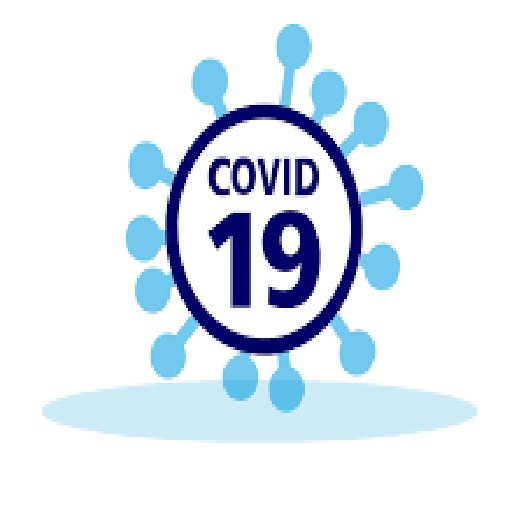An investigation into the impact of COVID-19 on private schools in Gwagwalada area council of FCT, Nigeria
Abstract
The study investigated the impact of COVID-19 on private schools in Gwagwalada area council of FCT, Nigeria. Questionnaire was adopted for the study. The sample of the study comprised 80 private schools administrators. The researcher used purposive sampling technique to select the sample from the population for the study. To ensure the validity of the instrument, test retest was employed to validate the reliability of the instrument. Simple percentage and chi-square was used to analyze the data collected for the study. The result collected revealed that COVID-19 Pandemic has impact on private school finances; COVID-19 Pandemic influences retrenchment of staff in private school; COVID-19 government intervention funds did not get to private schools proprietors and majorities of proprietress of private schools in Gwagwalada area council have not been able to pay their staff for the past two months of the COVID-19 pandemic. Based on this findings, the researcher hereby recommends that the government should provide specially intervention funds for the private schools with low interest rate. Based on the results obtained from the study, it was recommended that government at the federal and states levels should make provision for the private schools to access special intervention loans with low interest rate so that the private schools owners should be able to pay salaries to their staff
References
Africa’s population will double by 2050 https://www.economist.com/special-report/2020/03/26/africas-population-will-double-by-2050
WENR (2017) Nigeria Education System.
Federal Republic of Nigeria (FRN) (2014). National policy on education (4th Ed.). Lagos: NERDC press.
Agi, U,. K. (2013). The Challenges and Prospects of Managing Private School System in Rivers State. An International Multidisciplinary Journal, Ethiopia Vol. 7 (1), Serial No. 28,
BRACED Commission (2012). Facts Sheet on Education in the BRACED STATES.
Gift U, N. (2018) Administration of Private Secondary Education in a Dwindling Economy in Nigeria. Journal of Resourcefulness and Distinction, Volume 16 No. 1, November, 2018: ISSN 2276-9684 225
Craddock, A. (2017). WENR. Retrieved from https://wenr.org/2017/03/educationnigeria. 11/07/2018
Olufunminiyi, A. A. & Adekunle, B. A. (2018). Impact of economic recession in Osun state of Nigeria on physics education: The way forward. European Journal of Education Studies, 4 (2), 178-187.
Onukwu, J. N. & Igoni, M. J. (2017). Managing education in a recessed economy: The Nigeria experience. Scientific Research in Educational Studies & Social Development, 2(1), 41-52.
Nigeria Education in Emergencies Group (2020): Nigeria Education Sector COVID19 Response Strategy in North East.P-1
Ogunode, N,. J. (2020) An Investigation into the Impact of COVID-19 Pandemic on Higher Institutions in FCT, Abuja, Nigeria. Journal of Social Science, Education and Humanities journal homepage: https://www.sciworldpub.com/journal/JSSEH
Deborah, J. (2020) Perception of Undergraduate Students on the Impact of COVID-19 Pandemic on Higher Institutions Development in Federal Capital Territory Abuja, Nigeria. Electronic Research Journal of Social Sciences and Humanities Vol 2: Issue II ISSN: 2706 – 8242 www.eresearchjournal.com
Ogunode N,. J. (2020). Impact of COVID-19 Pandemic School Close Down on the Research Programme of Higher Institutions. International Journal of Advances in Data and Information Systems Vol. 1, No. 1, April 2020, pp. 40~49 ISSN: 2721-3056, DOI: 10.25008/ijadis.v1i1.189 40
Aeron, Z. (2020) Assessing the Impact of the CARES Act on Online Students: A Case Study of Two-Year Public College.
Ogunode N, J. (2020) Effects of COVID-19 Schools Close Down on Academic Programme of Senior Secondary Schools in Abaji Area Council of Federal Capital Territory Abuja, Nigeria. Electronic Research Journal of Social Sciences and Humanities Vol 2: Issue II ISSN: 2706 – 8242 www.eresearchjournal.com
Ezeanya, S. A. (2016). Increased establishment of private secondary schools and quality education delivery in Rivers State, Nigeria. Teacher Education and Curriculum Studies.1 (2), 33-38

In submitting the manuscript to the International Journal on Integrated Education (IJIE), the authors certify that:
- They are authorized by their co-authors to enter into these arrangements.
- The work described has not been formally published before, except in the form of an abstract or as part of a published lecture, review, thesis, or overlay journal.
- That it is not under consideration for publication elsewhere,
- The publication has been approved by the author(s) and by responsible authorities – tacitly or explicitly – of the institutes where the work has been carried out.
- They secure the right to reproduce any material that has already been published or copyrighted elsewhere.
- They agree to the following license and copyright agreement.
License and Copyright Agreement
Authors who publish with International Journal on Integrated Education (IJIE) agree to the following terms:
Authors retain copyright and grant the International Journal on Integrated Education (IJIE) right of first publication with the work simultaneously licensed under Creative Commons Attribution License (CC BY 4.0) that allows others to share the work with an acknowledgment of the work's authorship and initial publication in this journal.





1.png)
